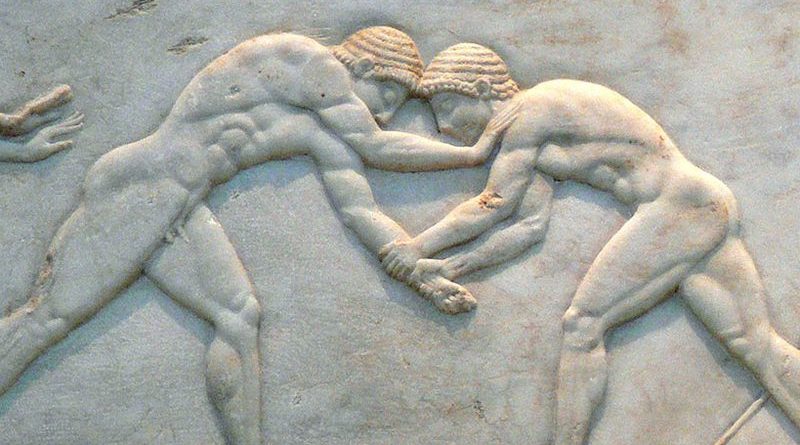In the grand arena of ancient Rome, where battles for glory unfolded, there lived a humble Roman soldier named Marcus. Marcus was not the strongest or the most imposing soldier in his legion, but what he lacked in physical stature, he made up for in sheer determination and unwavering commitment to the principles of Stoicism.
The day arrived when the general of Marcus' legion announced a grand competition to choose the soldier who would stand at his side as his chosen champion. The test would be a brutal display of hand-to-hand combat and grappling prowess—a true test of skill and courage.
Marcus knew he had to harness all his strengths, both physical and mental, to stand a chance among the legion's finest warriors. With the teachings of Stoicism echoing in his mind, he set out to prepare his mind and body for the ultimate challenge that awaited him.
Day and night, Marcus immersed himself in the art of grappling. He studied the techniques, honed his reflexes, and built his strength. But he also recognized that victory on the battlefield required more than physical prowess alone. It required a calm and focused mind, impervious to distractions and fear.
In the weeks leading up to the competition, Marcus practiced mental fortitude, training his mind to remain stoic in the face of adversity. He visualized the battles, imagining himself grappling with opponents twice his size, and emerging victorious through sheer technique and discipline.
The day of the competition arrived, and the arena buzzed with anticipation. Marcus stepped onto the sandy battleground, his heart pounding, yet his mind serene. His opponents towered over him, their muscles rippling with power, but Marcus remained steadfast, confident in his training and the timeless wisdom of Stoicism.
As the battles commenced, Marcus deftly maneuvered through the chaos, his knowledge of grappling guiding his every move. With each opponent he faced, he relied not on brute force but on technique and strategic thinking. He analyzed their movements, exploited their weaknesses, and executed precise maneuvers to gain the upper hand.
The crowd gasped in astonishment as Marcus triumphed over opponent after opponent. His agility, combined with the unwavering spirit of Stoicism, became his greatest assets. He remained calm amidst the chaos, allowing his opponents' aggression to exhaust them while he conserved his energy.
Through the grueling rounds of combat, Marcus emerged as the last soldier standing. His triumph was not just a victory for himself but a testament to the power of stoic principles and the art of grappling. He proved that true strength lies not only in physical might but also in the indomitable spirit and disciplined mind.
Marcus stood before the general, his body bruised and battered, yet his spirit unbroken. The general, impressed by his display of courage and skill, declared Marcus as his chosen soldier. The entire legion erupted in applause, recognizing the undeniable triumph of their humble comrade.
And so, the story of Marcus, the stoic warrior who conquered the battlefield with the art of grappling, became a legend in the annals of Roman history. His journey serves as a reminder that strength comes in many forms and that the principles of stoicism can empower us to overcome any obstacle, no matter how daunting.
As we embrace the lessons from Marcus' story, let us cultivate our own inner strength and resilience, drawing inspiration from the ancient warriors who mastered not only the physical, but also the mental and philosophical aspects of combat. May their spirit guide us in our own battles, be they on the battlefield or in the arenas of our everyday lives.


